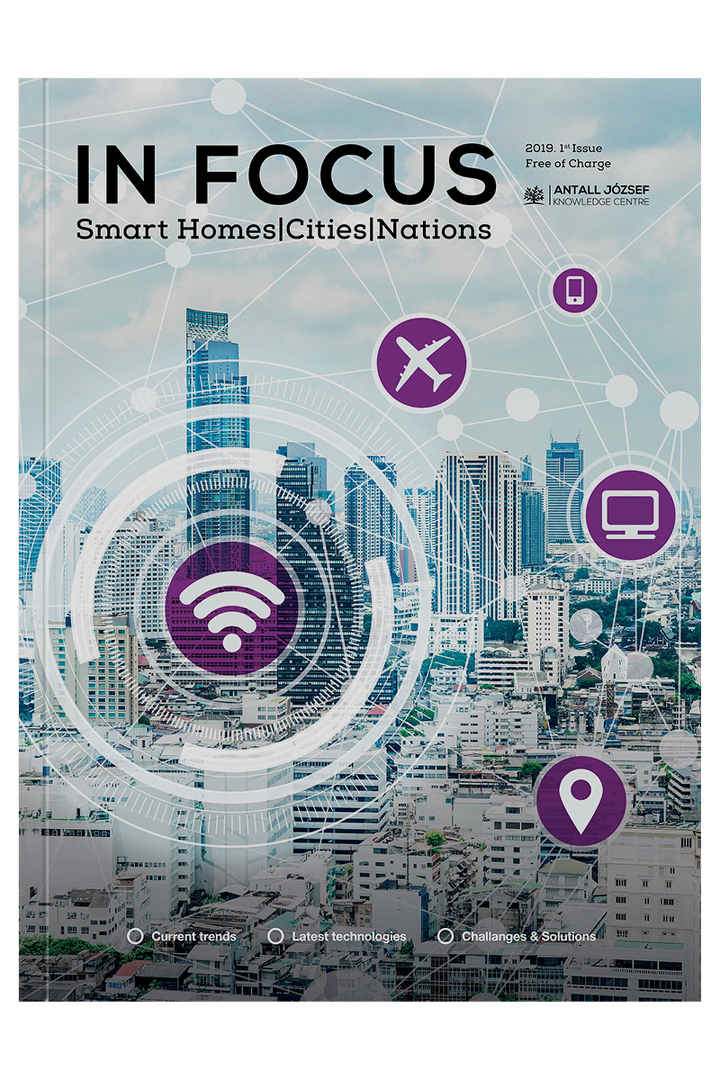It is a great honour to present you with the first 2019 issue of In Focus magazine. This issue’s topic is smartness from three perspectives: smart homes, smart cities, and smart nations. The past decade saw the emergence of the modified meaning of the word “smart”—a concept that is hard to define but is always connected with the notions of automation, user-customization, and adaptation. Making things “smart” is thus
designed to make our lives more comfortable, more cost-efficient, and maybe cheaper, greener, and healthier too. A smart home saves fuel, costs and most importantly, time for those living inside it. In a smart city, utilities reportedly do not waste our time and money and do not pollute. Furthermore, a smart nation spends extensively on innovation, research & development, as well as sustainability but has enormous returns in safer defence, greener economy and developing industries. Are we really facing a smart revolution that might entail a radical shift in international relations as well?
Well, that may well be. But there are dangers as well. Smart cities are suggested to be far greener than the more traditional types of urban development designs. However, the question becomes: will we be still able to own our houses, own our cities if they are getting smarter? The unhindered data flow useful in medical treatments can also be used for malicious surveillance and deliberate attempts at hijacking the political life
our respective countries. Even if there are many present problems “smartness” can solve, it does create a series of new ones—unwanted social, political, and environmental consequences that must be considered twice before endorsing those changes wholeheartedly. There have, however, never been serious changes in history that did not engender new challenges.
Editing the present issue of In Focus has been a side project of the 2019 think.BDPST conference, to be held on 5 April 2019. Our aim was to introduce features of the smart revolution—its opportunities and dangers alike.
We wish to bring together stakeholders from business, science, and public, to facilitate a discourse on innovation and how to use it best. At least there is one field in which our findings are clear: innovation is not only about technology but the way we see it develop and the way we ourselves adapt to it. The present publication as well as the conference, vow to contribute to such a public debate on “smartness,” innovation,
and society. Now we are inviting our readers to examine both sides of the same coin, and join in shaping the discourse on innovation.

